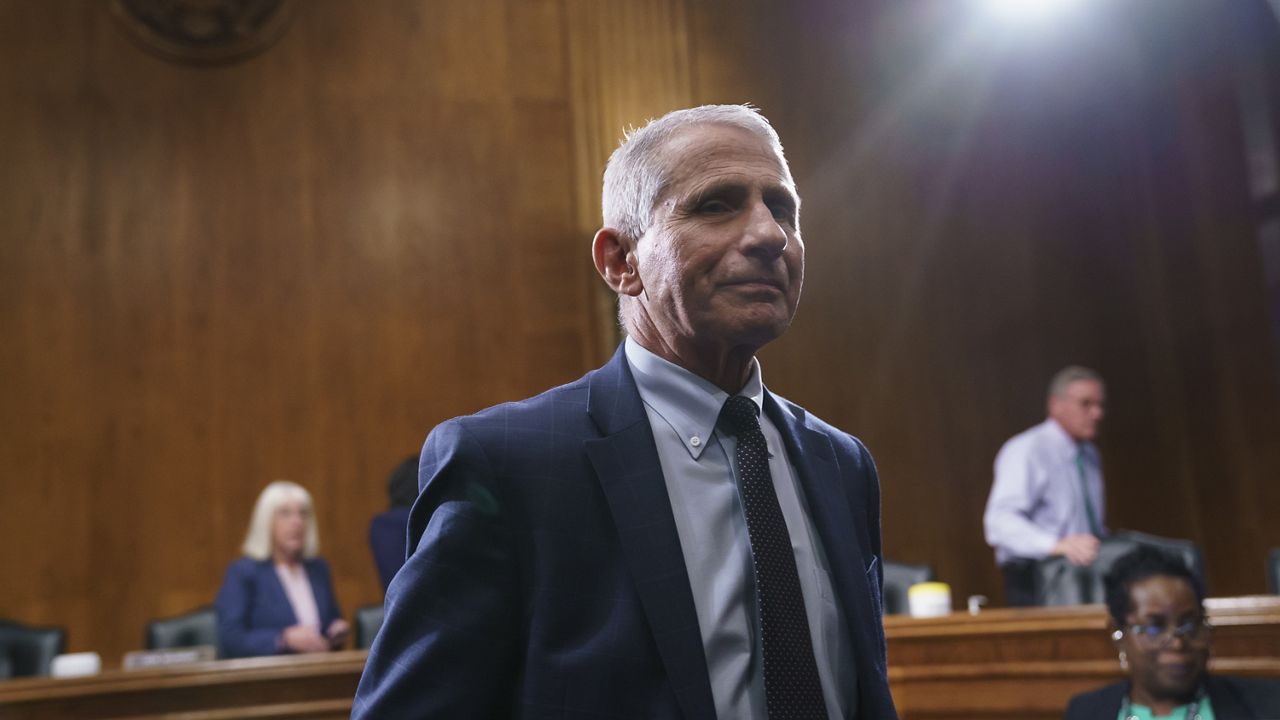Americans could emerge from the COVID-19 pandemic and return to “some degree of normality” by next spring, Dr. Anthony Fauci estimates.
What You Need To Know
- In several interviews Monday and Tuesday, Dr. Anthony Fauci estimated that Americans could emerge from the COVID-19 pandemic and return to “some degree of normality” by next spring
- Fauci, however, cautioned that Americans must do their part to prevent any further setbacks in the fight against COVID-19 by getting vaccinated
- Fauci said he's hopeful the FDA's full approval of the Pfizer-BioNTech will spur significantly more vaccinations
- He again avoided giving a target number for vaccinations, saying health officials cannot possibly know what the threshold is for herd immunity until after it is achieved
Fauci, director of the National Institute of Allergy and Infectious Diseases and President Joe Biden’s chief medical adviser, made the prediction in several interviews Monday and Tuesday.
However, Fauci, the federal government’s top infectious disease expert, cautioned that Americans must do their part to prevent any further setbacks in the fight against COVID-19 by getting vaccinated.
“There's no guarantee because it's up to us,” he told CNN on Monday night. “If we keep lingering without getting those people vaccinated that should be vaccinated, this thing could linger on, leading to the development of another variant which could complicate things. So it's within our power to get this under control.”
In May and June, it appeared the pandemic was on its way to being defeated, as the number of new daily infections in the U.S. had plunged to less than 12,000 a day. But lagging vaccination rates and the emergence of the delta variant fueled yet another surge. Last week, the country’s seven-day average of new cases topped 140,000 — the most since late January.
“This is a very wily virus,” said Fauci, who is director of the National Institute of Allergy and Infectious Diseases. “We thought we were going to have that degree of freedom as we got into Fourth of July and the summer, and then along comes a soccer punch with the with the delta variant.”
More than 171 million Americans — 51.5% of the population — are fully vaccinated. More than 201 million have received at least one shot. That means about 82 million people who are eligible have not yet been even partially inoculated.
On Monday, the Food and Drug Administration announced it granted full approval to the Pfizer-BioNTech vaccine, which some people had cited as a reason they had not yet been vaccinated.
Fauci said he’s hopeful the approval will spur significantly more vaccinations based on three factors:
A Kasier Family Foundation poll found that 31% of unvaccinated people would be more likely to get the shot after the FDA gave full approval.
The approval now allows Pfizer and BioNTech to advertise their vaccine.
Companies may be more willing to mandate their employees be vaccinated now, which Fauci said he supports.
“I respect people's freedom, but when you're talking about a public health crisis that we've been going through now for well over a year and a half, the time has come,” he said on CNN. “Enough is enough. We just got to get people vaccinated.”
When asked when he thinks the FDA might grant full approval to the Moderna and Johnson & Johnson vaccines, Fauci said it can be difficult to predict but added, “I would imagine ... that it likely would be a matter of a month or so, but not a lot more than that.” He noted that those companies have been behind Pfizer’s timeline in submitting material.
Fauci again avoided giving a target number for vaccinations, saying health officials cannot possibly know what the threshold is for herd immunity until after it is achieved.
“And when you don't know, the thing to do is to just do whatever you can to get as many people vaccinated as you can,” he told “CBS This Morning” on Tuesday.



